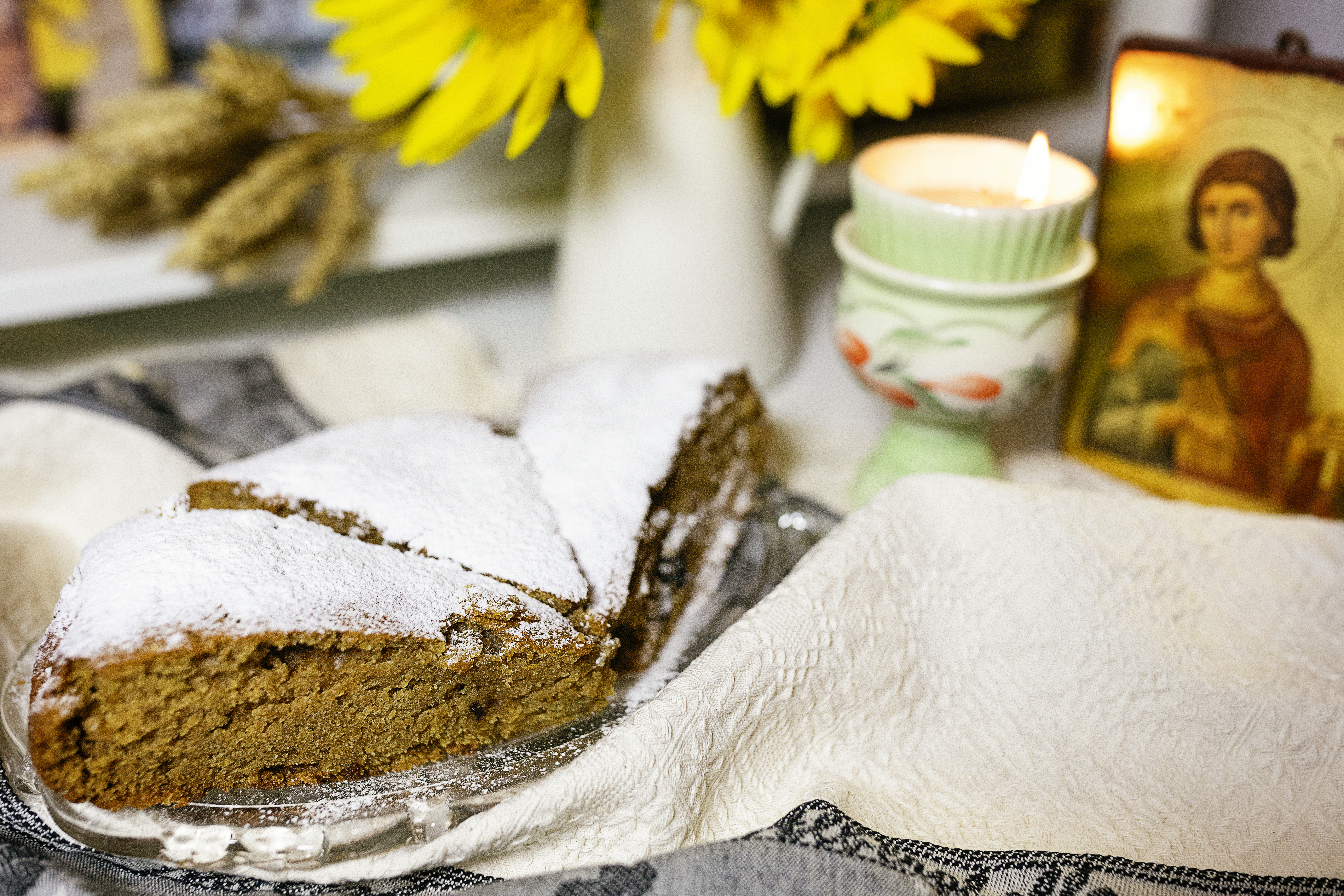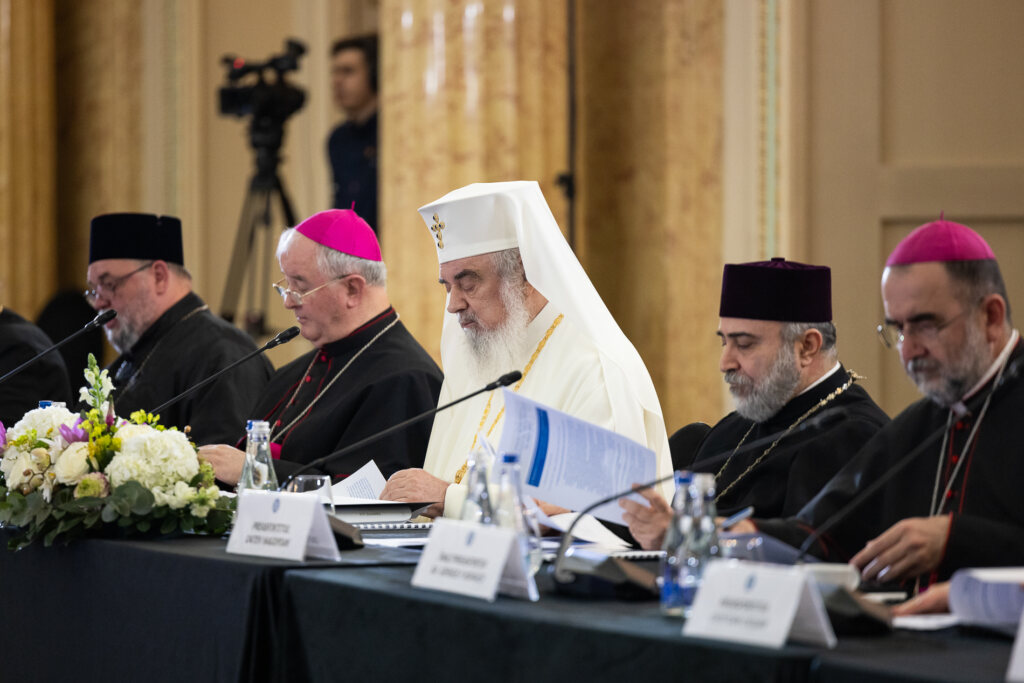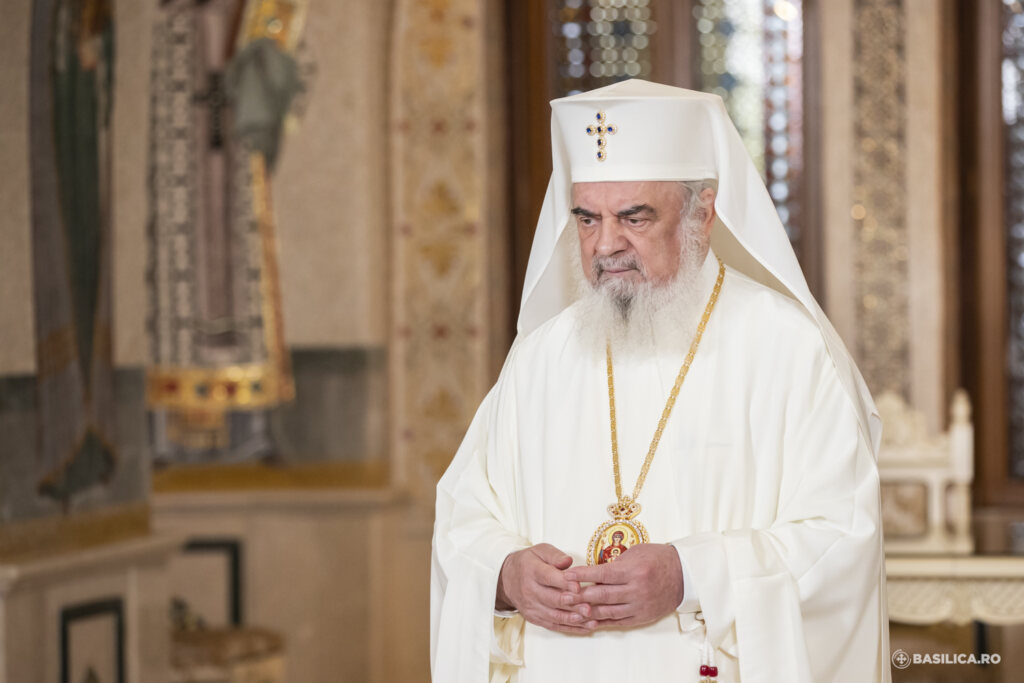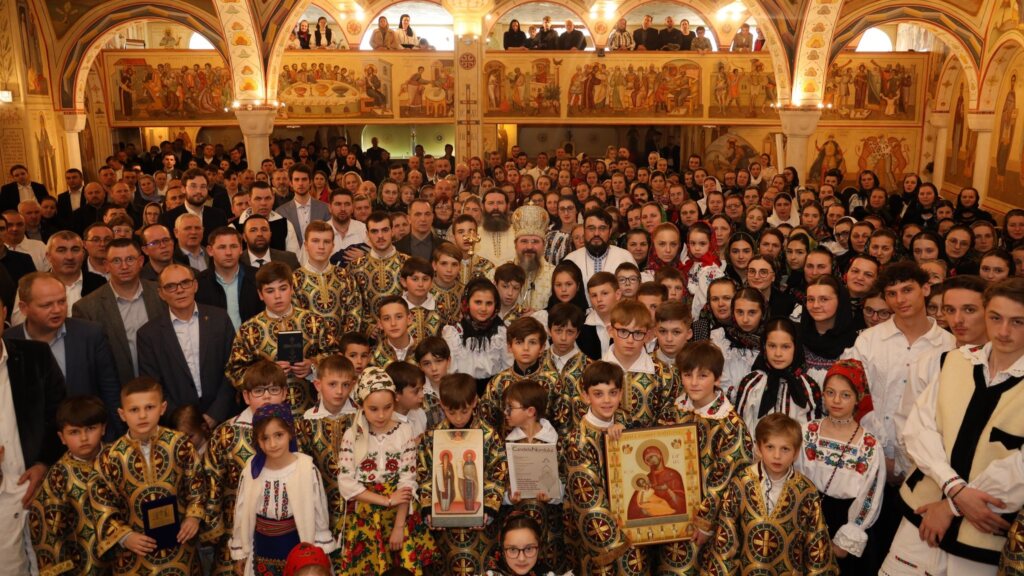Fanouropita is a Greek fasting-appropriate cake brought as an offering to Saint Phanourios for helping people find lost things and not only.
Saint Phanourios is also interceded for finding one’s way in life, for finding a spouse, for receiving inner peace or other things.
Numerous stories abound about how the saint became associated with finding lost items. In fact, his name comes from the Greek word “fanerono” or, to reveal— so there’s a clue, perhaps.
According to the tradition, Phanourios lived in Roman times and refused to give up his Christian faith. He was persecuted for his beliefs and ultimately forced to face 12 separate tortures by the Romans— persevering until his death.
The discovery of an icon in Rhodes (others say Cyprus) has made this island a focal point of celebrating this saint and many men of the island are named Phanourios.
The icon depicted Phanourios dressed as a Roman soldier and carrying a cross. Around his image were twelve scenes from his life when Romans tortured him.
Why do we bake the fanouropita?
The explanation comes from the life of the Saint. When he was martyred, being wrongly accused of wanting to take the place of the emperor, he was allowed to make his last prayer.
Saint Phanourios prayed that any person who will make ‘a cake with oil and sugar or a pie and give it to the poor, may be listened to in any sorrow they would have.’
The saint also prayed that this sacrifice be for the forgiveness of the sins of his mother, who had died a pagan.
The Saint’s mother is said to have been a tough, and hard woman especially towards the poor, and behaved inhumanly and the Archangel Michael, along with Saint Phanourios, tried to help her change but couldn’t.
God answered the saint’s prayers and entrusted him that whoever would call upon his name for help, would receive God’s help.
Fanouropita recipe
There are several recipes for this very aromatic cake, but the traditional ingredients include wheat flour, olive oil, walnuts, raisins, sugar, cinnamon and nutmeg. Many contemporary recipes list fresh orange juice among ingredients.

An important aspect is that during the whole baking process you should pray to Saint Phanourios and even have the candle lit in front of his icon.
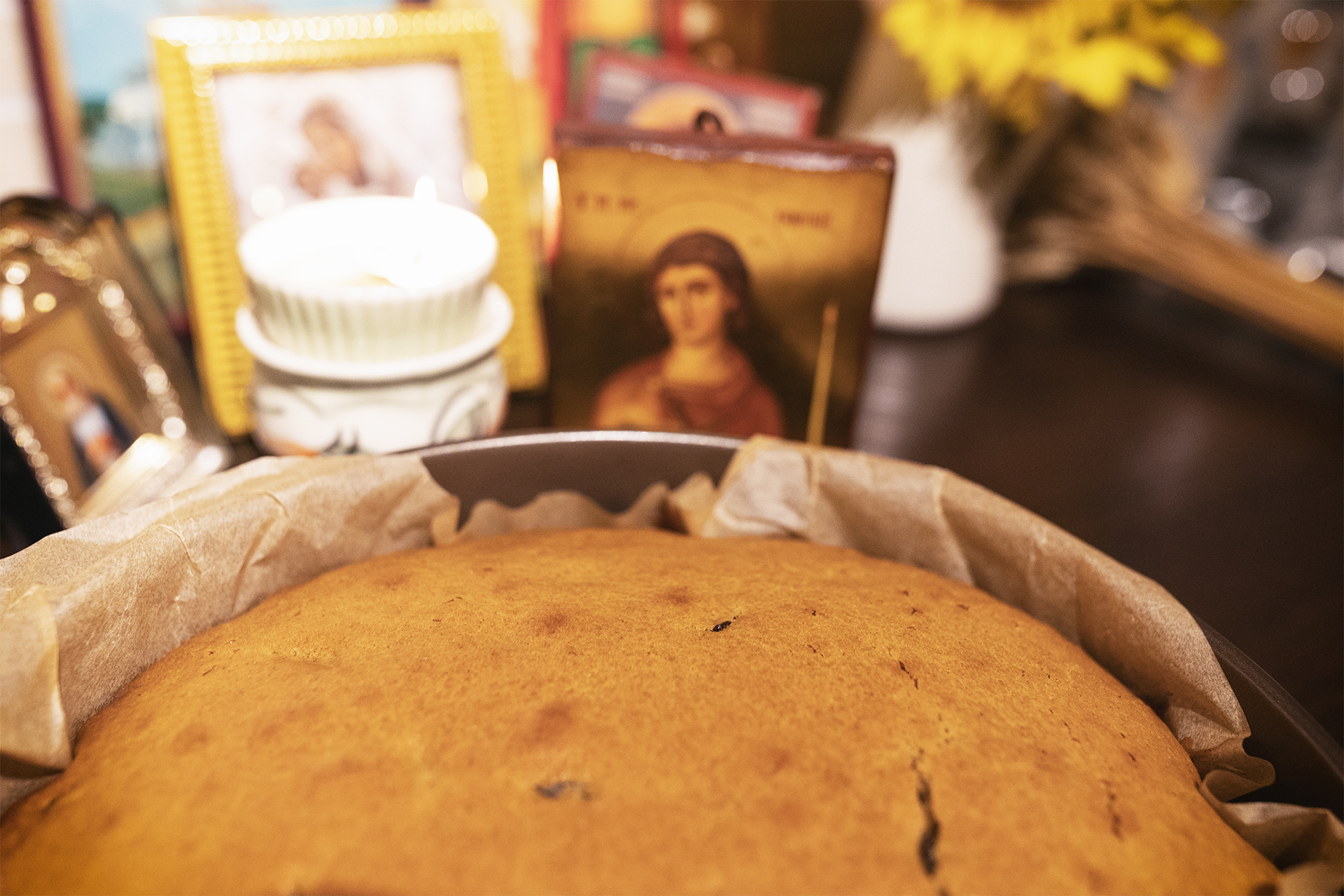
The cake can be made any day except for Sunday using 7 or 9 ingredients representing the seven Holy Sacraments of the Church or the nine angelic choirs.
In communities throughout the world, cakes are baked the night before August 27 and brought to church to be blessed by the priest.
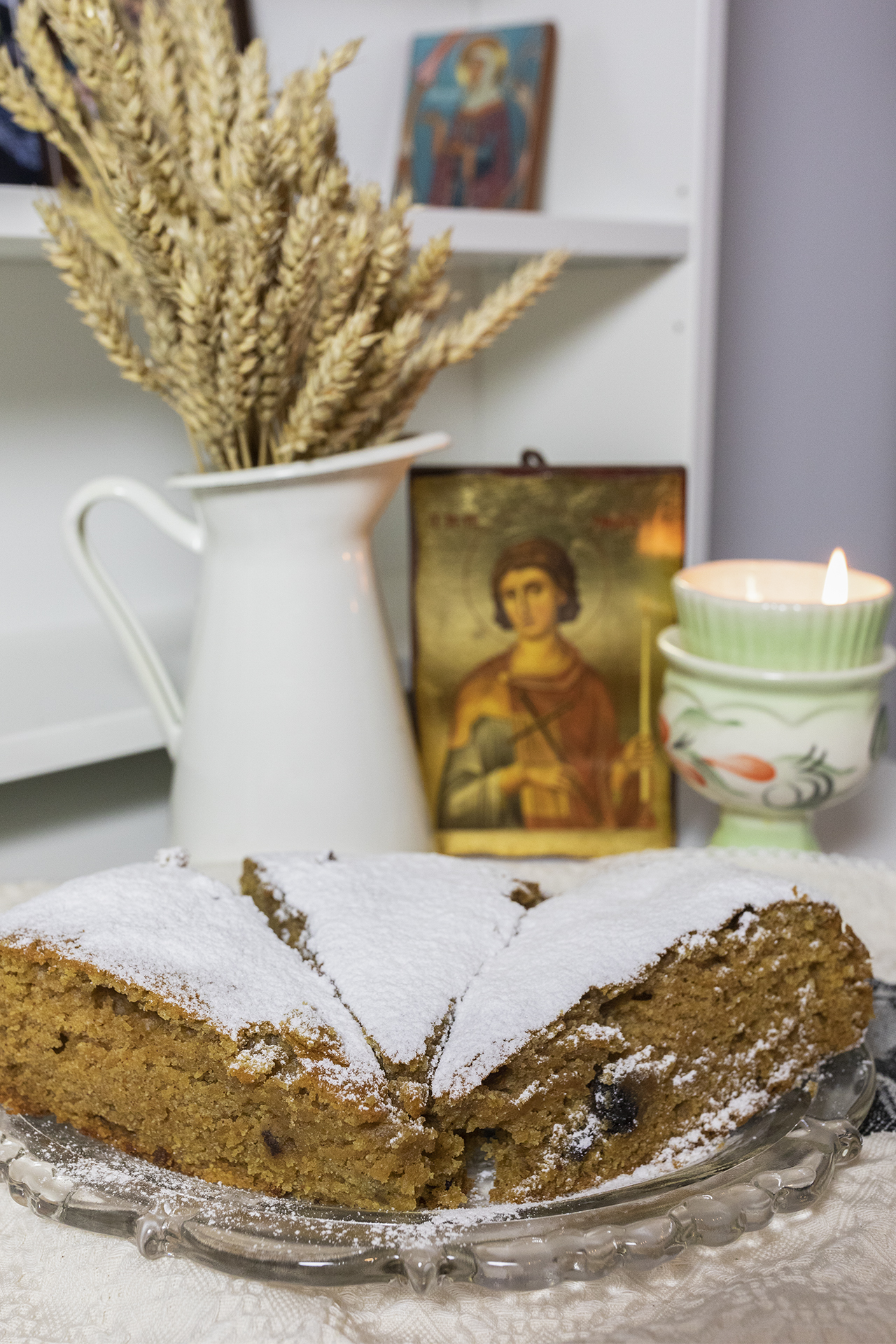
Another condition is that fanouropita is shared with the poor. After receiving an answer to the request, a second cake should be made as thanksgiving, which will also be distributed to the poor. In some regions of Greece, fanouropita can be shared with family, friends or colleagues.
Since it is a centuries-old tradition, we will encounter several variants of this practice. However, the most important thing is that the fanouropita be made with charity, with heartfelt prayer and the belief that the Saint Phanourios receives our sacrifice and thanks for fulfilling our request.
Photography courtesy of Basilica.ro / Raluca Ene
Follow us on Twitter: @BasilicaNews
